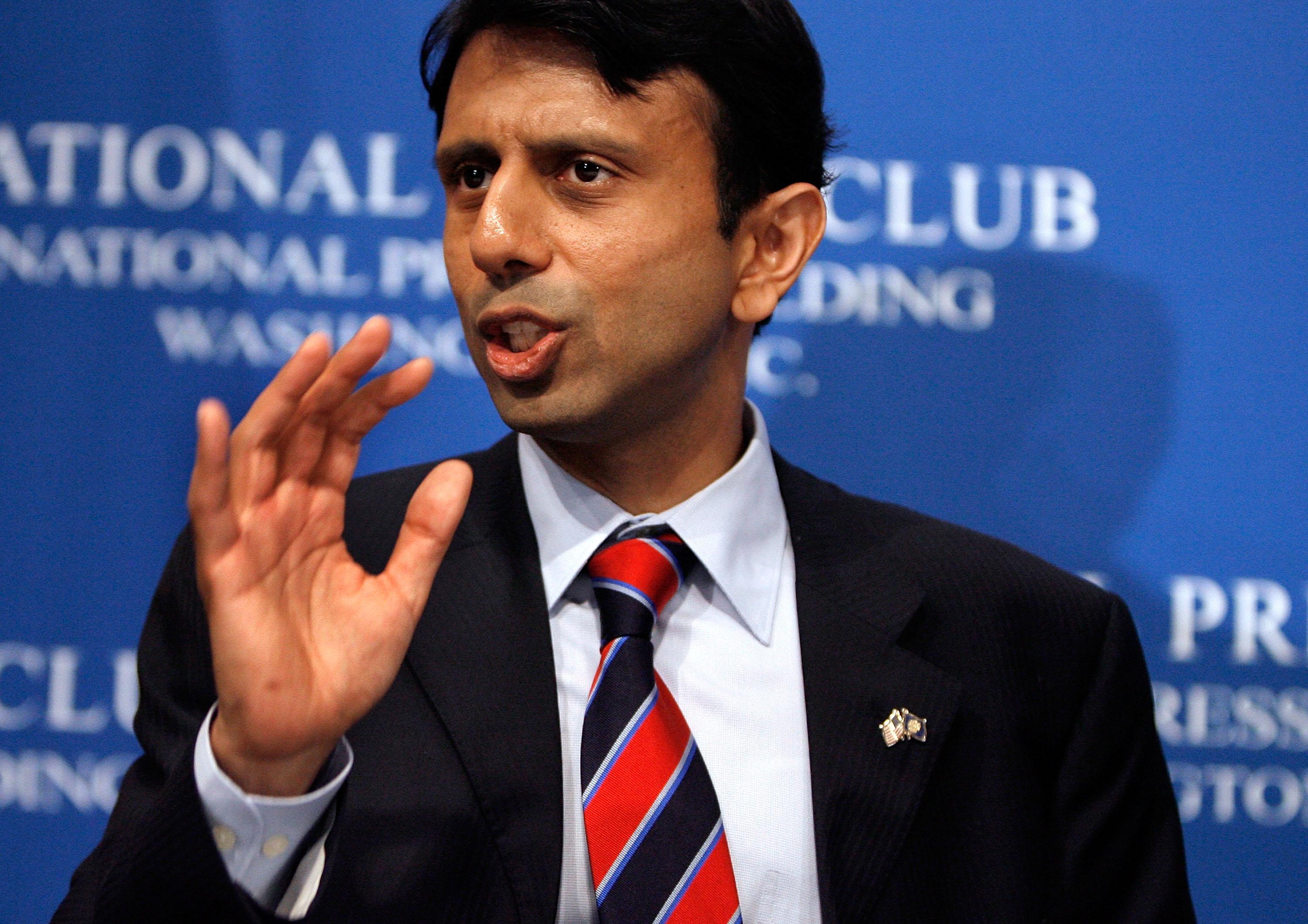Bobby Jindal in the course of urging Republicans to buck up and hew to the orthodoxy offers this sensitive gloss of American progressive politics (emphasis added):
Because the left wants: The government to explode; to pay everyone; to hire everyone; they believe that money grows on trees; the earth is flat; the industrial age, factory-style government is a cool new thing; debts don’t have to be repaid; people of faith are ignorant and uneducated; unborn babies don’t matter; pornography is fine; traditional marriage is discriminatory; 32 oz. sodas are evil; red meat should be rationed; rich people are evil unless they are from Hollywood or are liberal Democrats; the Israelis are unreasonable; trans-fat must be stopped; kids trapped in failing schools should be patient; wild weather is a new thing; moral standards are passé; government run health care is high quality; the IRS should violate our constitutional rights; reporters should be spied on; Benghazi was handled well; the Second Amendment is outdated; and the First one has some problems too.
I am genuinely unsure what “factory-style government” is supposed to mean, but we see here that Jindal, like all too many people in American politics, is deeply ignorant about the operation of money under a fiat currency regime. The expression “money doesn’t grow on trees” comes down to us from a time when the gold standard was in effect, and a large share of the population had direct access to fruit-bearing trees. Nowadays it would be quite difficult for me to pluck anything of value off a tree, but the Federal Reserve really can create arbitrary quantities of money with the stroke of a key.
That’s a very important development. It does not, of course, change the fact that real constraints bind. No matter how much money we print, there’s only so much gasoline available or houses for rent. Print too much money, and prices will just rise. On the other hand, if there are a lot of unemployed people and the printing of money leads to expectations of future price increases, then entrepreneurs might hire those people to alleviate some of the scarcities. Rising prices of housing could mean new home construction. Rising prices of goods could mean new orders of factory equipment and trucks to bring the goods to market.
By the same token—the federal government really doesn’t ever need to pay back its debts! The federal government is immortal! It just needs nominal GDP to grow over the long run at a faster rate than the national debt.
